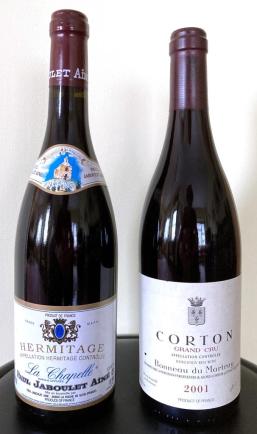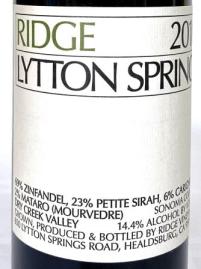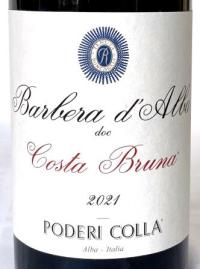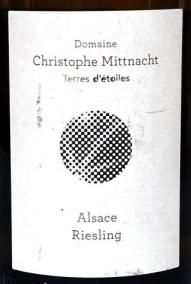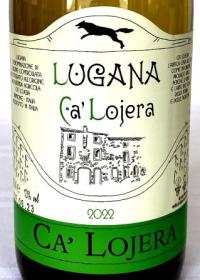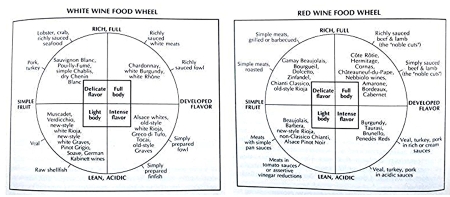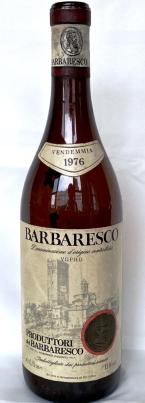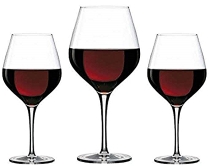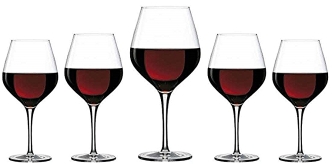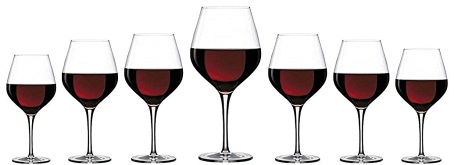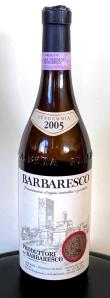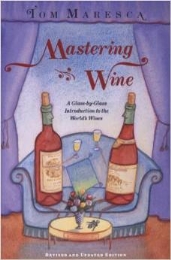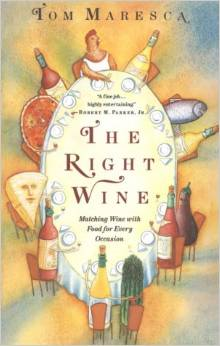by Ole Udsen
I was recently asked to write up some thoughts on real sustainability as it relates to the wine industry. The request came as a result of some comments I had made in social media regarding wine professionals’ knee-jerk equation of organic and biodynamic practices with sustainability. My point was that, while there may be elements within those practices that favour sustainability, real sustainability is a much wider and deeper practice that requires greater focus and more work on the part of those who claim sustainability than the mere constatation that organic or biodynamic practices are in play. In fact, claiming sustainability merely based on those practices will soon become illegal. My piece on this appeared in the Danish Sommelier Association’s membership publication in September 2023. For space reasons, I could not unfold the full scope of my arguments, so I take this opportunity to expand upon that piece here, in my own little echo room.
Very briefly, wine is not currently a sustainable practice, but it can be made so, and the road ahead involves existing, and to some people controversial, science and practice.
Note: If you wonder about my professional sustainability credentials: For the past 5 years I have been working within the circular economy sphere, which, if anything, is all about sustainability. Initially with now defunct Maersk Decom, which decommissioned offshore oil & gas fields, and now with start-up Renable (www.renable.eu), of which I am a co-founder. A large part of my work in both settings has been about real sustainability, in its broad sense. I write this piece on that basis.
Setting the Scene
As you may gather, I have lost patience with the automatic equation of organic and biodynamic with sustainable. In fact, overall, one may even argue that – in a “feed the world” context, with a growing global population – organic and biodynamic are unsustainable practices, since those practices generally reduce yields and therefore both increase CO2 emissions per produced unit and lead to the need to increase the surface of land under agriculture to sustain – and certainly to increase – production levels. The results in terms of food insecurity, increased climate risk and lost biodiversity (let’s face it, even when producers are very biodiversity conscious, they are mostly growing monocultures, which does no good for natural biodiversity) would be notable if those practices were employed at large. They are not. Less than 2% of the world’s agricultural land is farmed using organic or biodynamic practices. And wine is drunk by a small, but wealthy, minority of the world’s population. This essentially means that organic and biodynamic wines are rich-world, old-white-men luxury pursuits, and basically make a negligible contribution towards saving the world, if at all. Sorry, but that’s what the numbers tell us.
To be sure, there are significant problems with so-called conventional farming practices that both impoverish soils and lead to unsustainable levels of nutrient run-off, so conventional farming as currently practiced is not long-term sustainable either. However, as argued, the large-scale problems with current conventional practices cannot be solved using merely organic or biodynamic practices. A much wider and deeper approach to sustainability is required in order for the world not to run out of food production capacity, and while vines are often grown on marginal soils that are not well-suited to food production, the same goes for viticulture, for viticulture has significant problems. To illustrate that, a few simple ratios: In Europe, viticulture takes up about 3% of agricultural land, but employs nearly 65% of all fungicide, 15% of insecticide and 4% of herbicide used on an annual basis (all per EU Parliament data). Why? Well, the vine, a riverside liana, has been removed from its normal riverine habitat in theCaucasus and the Levant and is now grown in disease- and pest-attracting monoculture, using methods that force it to grow in ways that are not natural to it. Further, human intervention has meddled with the vine’s DNA over millennia, and has narrowed its natural range of expression, meaning that vines are now more susceptible to diseases, because they have less natural variation in defences.
Probably the major problem with viticulture is the cultivated vine’s frankly miserable resistance towards fungal diseases. The European cultivated vine, vitis vinfera, taken from its natural habitat and selectively bred, simply lacks the so-called R genes, which for instance give the robust American wild vines their great resistance to fungal diseases, phylloxera and assorted other vileness. Growing vitisvinifera commercially therefore requires, more than any other crop, an intense chemical regimen. If not, you stand to lose your harvest and / or – and much worse – harvest grapes infected with all sorts of noxious substances. Apart from the significantly quality-reducing effect of harvesting grapes attacked by fungi, mycotoxins (the toxins left by fungal attacks) are not to be trifled with; they are known, among other things, to be carcinogenic.
So, is wine sustainable at all? Well, no, not as currently practiced. Nor can organics or biodynamics improve on that in any meaningful way. But should we give up on wine? No! Wine has provided untold enjoyment, solace and cultural expression over the course of millennia and, as I will argue further down, can be brought to a sufficient level of sustainability.
Sustainability is a highly complex and detailed jungle, and while my blog in principle has unlimited space, I doubt if your patience with my long-windedness is equally unlimited. However, I do need to get rather technical before I can get to what must be done, so in the following I go into a little bit of history as it relates to sustainability, then delve deeper into sustainability categories, listing relevant aspects as they relate – first – to wine production and then to wine import / distribution. I briefly discuss sustainability certification options, to what extent organic and biodynamic practices can be considered (automatically) sustainable, and conclude with a bit of opinion as to the opportunities and dangers of claiming sustainability.
Wine and Sustainability – A Tiny Bit of History
The practice of viticulture has deep roots, going some 11,000 years back, with two domestication centres in the Caucasus and the Levant. Here, wild vines – vitis vinifera sylvestris – were domesticated from their local riverine habitat.
Pre-historically and historically, farming vines and making wines was inherently more sustainable, since many of the diseases that we now need to fight in the world’s vineyards had not yet found their way to vitis vinifera, and since winemakers relied on entirely natural processes, local resources and farming practices that were integrated out of necessity. We don’t discuss wine quality here, since the great majority of wine up until fairly recently seems to have been rather vile and went bad quickly.
It was only with the advent of industrialised agriculture and the global spread of certain, mainly North American, fungal and parasitical diseases, that wine production started to diverge from these practices. But exactly because of the now global nature of vine diseases, and because the demand for wine is now far greater than ever before, there is no way we can turn back to the ancient practices in any meaningful way, even if some of the ways in which wine production was once local and integrated can offer interesting insights if brought into a wider sustainability context.
What is Sustainability?
In the world at large, sustainability is now being discussed and measured in relation to so-called ESG (Environmental, Social, and Governance) factors. With increasing global attention on climate change and sustainability, the ESG concept has become increasingly relevant, and legislation is for instance being passed on an EU level to define, measure and report on real sustainability. The most relevant piece of legislation in this regard is the EU Corporate Sustainability Reporting Directive (CSRD), which contains a taxonomy of sustainable practices, rules for gathering and reporting on data and sanctions in the case of non-compliance and false claims of sustainability. The CSRD has been passed and will enter into force for the first group of companies (mainly very large corporations and entities listed on stock exchanges) already in 2024. Other businesses – including wine businesses – will be phased in until 2026, but because of the market power of the large entities, it is to be expected that CSRD requirements and practices will filter down into most parts of the EU economy before then. EU leads the world in this type of legislation, so we should expect to see the same type of regulation appear elsewhere within short.
While the wine industry consists of few large players and many small and medium-sized enterprises, and has a delightful tendency to be rather conservative in terms of corporate fads, both producers and dealers of wine will soon be faced with requirements to gather and report on ESG data in a much more comprehensive, structured and detailed manner than is currently practiced.
ESG Aspects in Wine Production
Typical environmental aspects of wine production include:
• Sustainable soil management: Soil conservation, green fertilizers, potentially organic farming
• Water management: Efficient use of water, water recycling, and protection of water sources.
• Climate impact: Reduction of greenhouse gas emissions, use of renewable energy, efficient energy usage, climate adaptation. Aparticular issue here is the choice of packaging used: Glass bottles emit orders of magnitude more CO2 than other packaging options, so when it comes to wines that are not destined for long-term bottle ageing, there should be no reason to sell them in glass bottles, stoppered with the finite resource called cork. Also, when it comes to the glass bottles themselves, there is a particular issue with their weight; the heaviest bottles have a negative climate impact orders of magnitude larger than the lightest, because they not only emit more greenhouse gases in their production, but cause much greater emissions during transport and recycling. In a normal glass bottle of wine, as much as half of its carbon impact comes from the glass alone, and for the heaviest bottles, this comes in much higher.
• Biodiversity protection: Preservation of natural habitats, promotion of biological diversity
• Waste management: Minimization and recycling of waste, including packaging (a new EU packaging regulation will come into full force in 2026, with stringent requirements, and the rest of the world will soon follow)
Social aspects include:
• Working conditions: Ensuring safe working conditions, fair wages, no child labour, abiding by human rights
• Community impact: Support for local communities, including investment in local projects
• Health and safety: Ensuring health and safety standards for all employees
• Consumer health: Quality and safety of the product, including lawful use of pesticides
And governance aspects include:
• Corporate governance: Transparent, accountable and effective management
• Ethical supply chains: Ensuring that suppliers also meet ESG standards
• Anti-corruption: No tolerance for corruption and bribery
• Regulatory compliance: Compliance with all relevant laws and regulations, including CSRD
• Diversity and inclusiveness
• Profitability: Yes, to be sustainable, a business also needs to be profitable
ESG and Wine Import / Distribution
Most aspects for “the dark side” of wine remain the same as for wine production, but it is important to note that importers / distributors will be responsible for ensuring that the wines they bring to the market meet ESG criteria. This means that they must conduct due diligence on their suppliers and be transparent with consumers about the wine’s origin and production methods. If you might wish to go deeper into best practices in this regard, go look for material relating to EU’s upcoming Corporate Due Diligence Directive (CDDD); this is a major piece of work, still in process, but set to become law during 2026 or 2027.
Additionally, wine dealers will also need to account for the environmental impact of their distribution and packaging. This can involve choosing sustainable packaging materials, minimising transport distances, choosing less-emitting transport modes and optimizing inventory management to reduce waste. Emissions and other impacts may be difficult to measure, but most transporters nowadays offer emissions calculations. Ultimately, emissions from the distribution activity may be unavoidable, so importers / distributors may need to buy offsets; luckily, while there are many more or less dubious offset possibilities, the reputable ones will normally contain an option to approximate a business’s overall emissions, and if one does that in a conservative manner, it is indeed possible to cover one’s emissions in a reasonably cost-effective manner, as do I in my own little importing business.
Sustainability Certifications for the Wine Industry
One way to enable greater certainty as to sustainability claims within the wine industry is to rely on the various sustainability certifications that are available. Unfortunately, there are many – in France alone, you have a choice of some 13 certification options that somehow relate to sustainability, per Danish wine writer René Langdahl Jørgensen – and some are more reliable than others, including those that are government-backed and comprehensive. Certifications include:
• Organic and / or Biodynamic Certification: These should be relatively well-known to the readership, but for the sake of good order, let’s not forget that these practices do not abolish spraying with chemicals or use of fertilizer, they limit the spraying and fertilizer options. There are numerous organisations across the globe that provide these certifications, and some of them are fighting each other, but as a general rule they are quite reliable
• Sustainable Winegrowing: Organizations like Sustainable Winegrowing Australia and California Sustainable Winegrowing Alliance offer certifications that take into account both environmental and social aspects of wine production
• Fair Trade Certification: The Fairtrade label guarantees that workers receive fair wages and working conditions, and that environmental considerations are taken into account
• Corporate Sustainability Certifications: Businesses may choose to subject themselves to corporation-wide certifications such as B Corp or VIVA, which asses the impact of the production process in respect of environmental protection, social progress and economic development
So, Are Organic and Biodynamic Winemaking Practices Sustainable in an ESG Sense?
Organic and biodynamic agriculture are often automatically viewed as more sustainable alternatives to conventional agriculture, but it’s important to remember that “sustainability” is a multidimensional, holistic concept that includes all ESG aspects.
Organic wine producers avoid the use of synthetic pesticides and fertilizers, which can benefit the local ecosystem and biodiversity, and may improve soil health. However, one reason why viticulture uses 65% of all fungicides sprayed in the EU is that many vine growers, with peaks within the organic and biodynamic practices, rely on copper sulphate – so-called Bordeaux mixture – as their primary fungicide, and copper sulphate is very ineffective, so large volumes need to be used. Copper is poisonous to life, and its widespread use should be a cause of much concern. In terms of climate impact, the picture is more mixed. Organic farming generally has higher greenhouse gas emissions per unit produced, because organic practices require more interventions in the vineyard – due to the reduced efficacy of the pesticides etc. being used – and because of generally lower yields. Additionally, organic farming is often more dependent on manual labour, which can increase social costs, including the use of slave-like conditions for seasonal vineyard workers.
Biodynamic viticulture’s focus on farming as a holistic, living concept generally benefits biodiversity and soil health, which contributes to long-term sustainability. In terms of greenhouse gas emissions, biodynamic methods could potentially contribute to storing more carbon in the soil, which can help offset the climate impact of wine production. But like with organic farming, use of copper sulphate is high, yields are often lower, vineyard interventions more numerousand manual labour more widespread, so the exact sustainabilityimpacts vary depending on specific practices and local conditions.
Can Wine Become Sustainable?
There is a romantic notion out there, that if we just “go back to nature”, all will be well, because Nature wishes us well. But nature really wants you dead, for you are not good fertilizer while alive. And, more seriously, we are now far too many people in the world, with far too great a wish for obtaining personal well-being and freedom, for humanity to return to a life that is wholly consistent with nature in its unmanipulated state. Besides, more narrowly, there is nothing natural about growing and making wine; none of the methods in use to do that can or would occur naturally, i.e. without the intervention of mankind.
So, intervention on our part is required, and I believe that this intervention needs to be deep. It is, after all, us human beings – with our constant, and entirely natural, need for improving, simplifying and increasing – that have brought things to their present state, so we, too, must get us to somewhere better, and preferably in ways that enable us to keep improving lives and do not infringe on personal freedoms.
If wine is to become truly sustainable, I think we need to approach it in a manner that to some will appear directly heretical, and to manyrather controversial:
• We need to begin with using more of the so-called PIWI (strongly fungal-resistant) recent hybrid crossings in the vineyard. They are there in good numbers now, and actually make excellent wine in some places.
• For what little spraying will be needed, we must use the most modern, systemic sprays, for then we need to use much less of each compound than with surface contact compounds; this will also result in much less vineyard intervention, hence better soil health, better nutrient retention, less emissions etc.
• We need to get away from humans and tractors in the vineyards, and start using drones and robots.
• We need to move away from glass bottles except for those (few) wines that are destined for long ageing; read an impassioned plea for that (and for not drinking wines too young) by my wine-writing friend Paul Balke here: The wine market has forgotten the concept of time – Paul Balke
• If we want to keep the wines we know, from the places we know (and don’t we all?), while being pummelled by climate change and influenced by the movement towards greater biodiversity and less intervention in nature, we must start genetically manipulating existing varieties towards greater resistance to disease, drought, temperature etc., while they at the same time ripen in a balanced way at the new temperatures, all while maintaining the characteristics we know. Climate change is moving too quickly for us to sit down and wait for natural selection to find its own way.
• And when all of that is in place, we can assign bit parts to organics and biodynamics in the greater context called regenerative agriculture, maybe even permaculture, for these latter two bear the promise of real, scientifically valid sustainable growing practices, rather than romantic, but ultimately backwards, “natural” dalliances
• And finally, we must not forget the social and governance aspects of sustainability, including the fact that sustainability is also about profitability, even if we great spirits of course can only nurture scorn for filthy lucre
Sustainability is not just a fad in the wine industry, it is a fundamental and necessary shift in how companies must operate. Both producers and dealers are realizing that it is not only good for the planet but also for the bottom line. As documented by i.a. McKinsey, a strong ESG profile can create loyalty among consumers, who are increasingly choosing products that are produced in a sustainable and ethical manner. Further, while it may be work intensive and tedious, actually going into detail about the many aspects of holistic sustainability will eventually pay dividends in the form of greater knowledge of your activity and business, which lays the foundation for greater innovation, both in terms of sales and costs.
There are pitfalls in respect of sustainability. False or unsubstantiated claims of sustainability may not only reduce a business’s standing vis-à-vis its customers, which can be lethal enough, but may also attract fines or other sanctions once the full range of sustainability regulation has been enacted.
The wine industry, like the rest of the world, faces having to adapt to this new reality of sustainability, and soon. There is no longer time or space for facile shortcuts in respect of these issues, and a holistic, scientifically valid mindset must be put in place.
It is to be hoped that this is not one area in which the wine industry will be a laggard.

